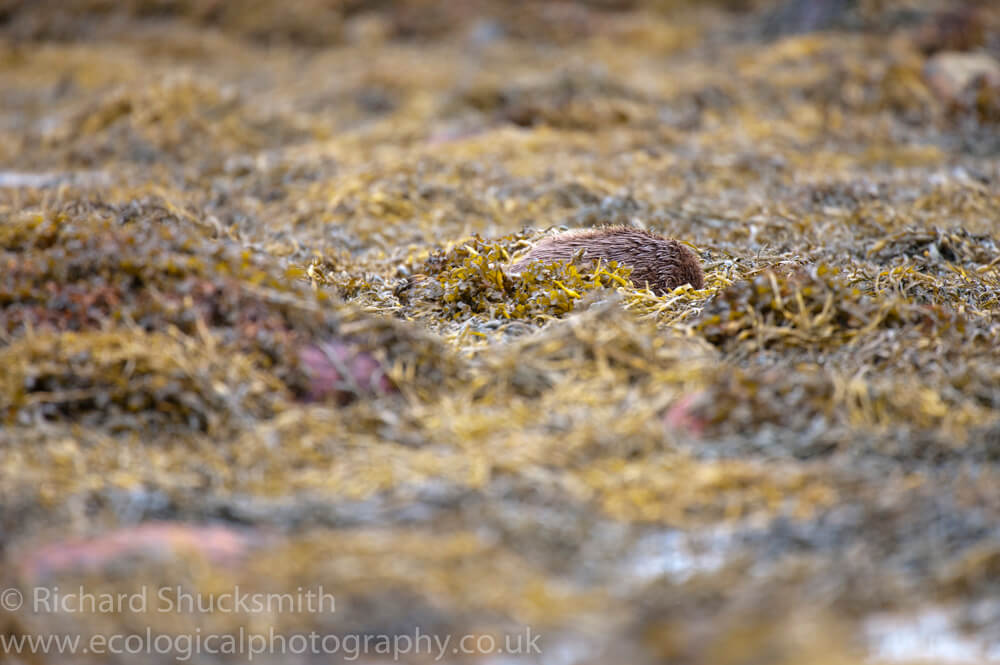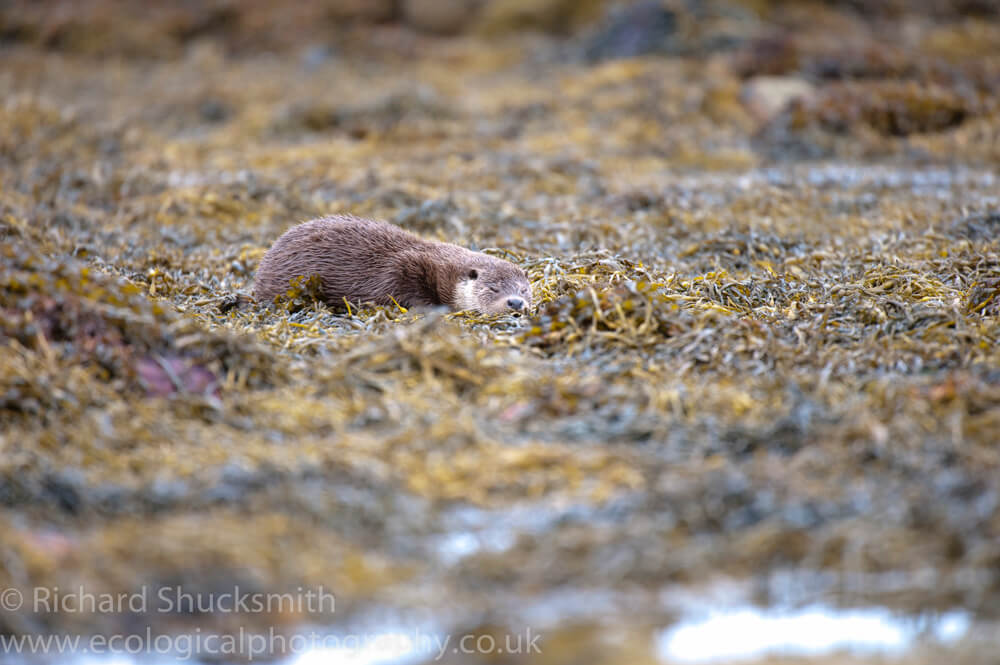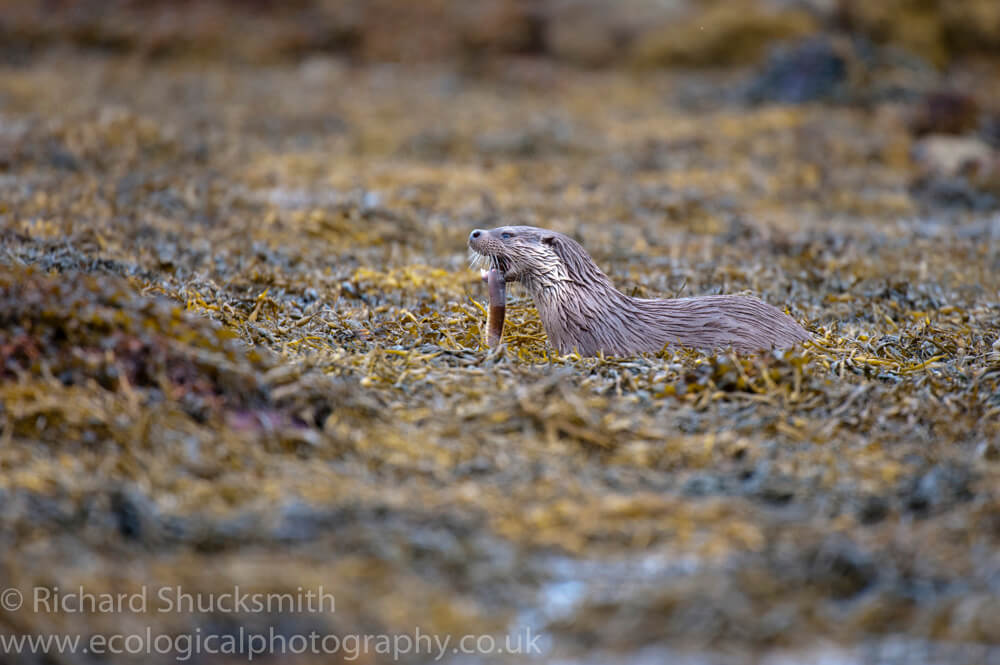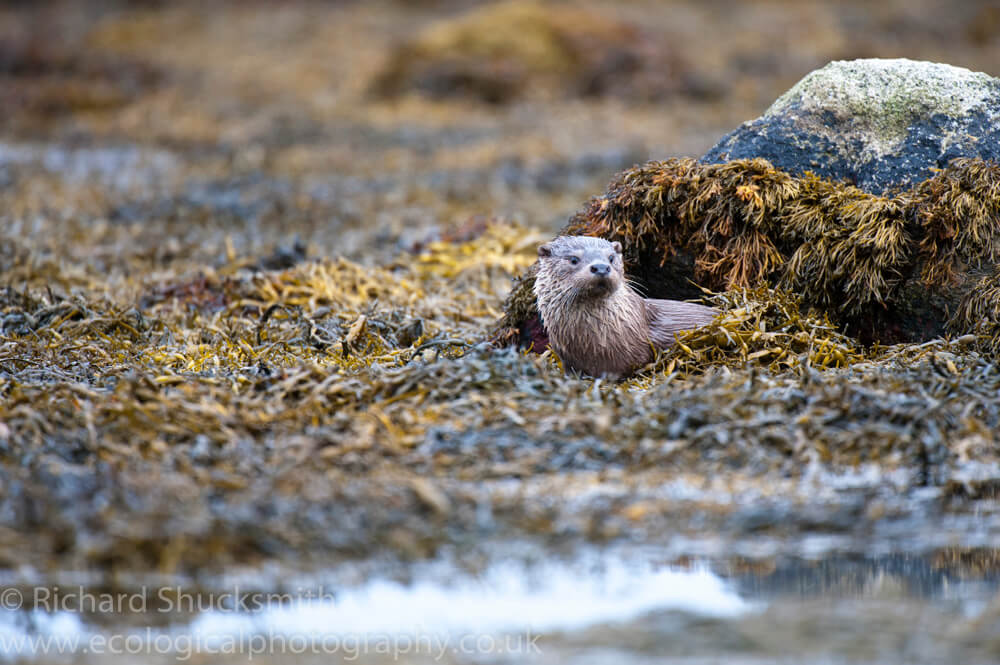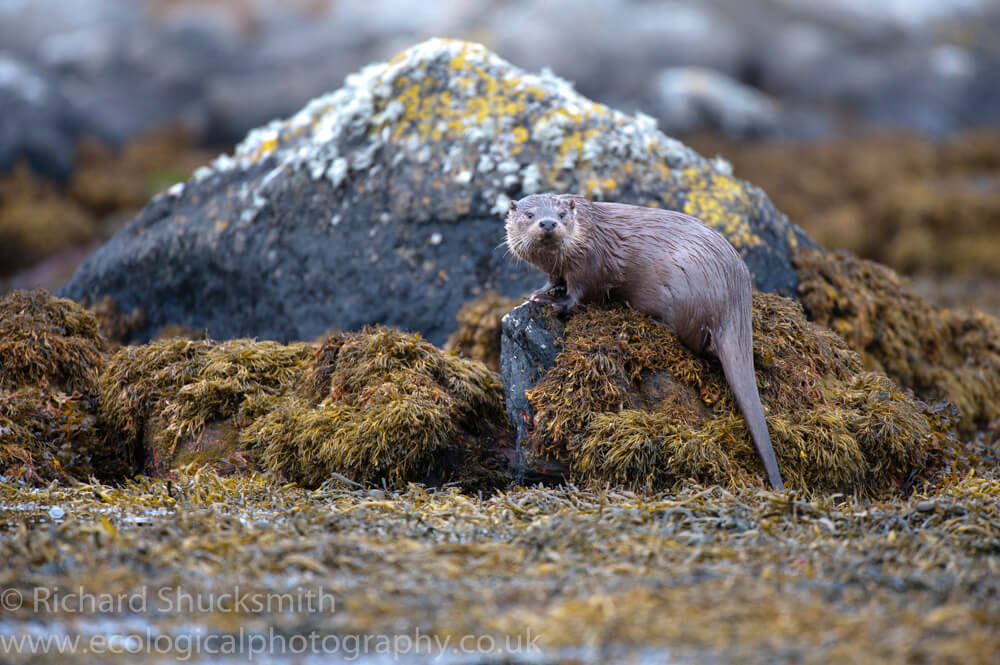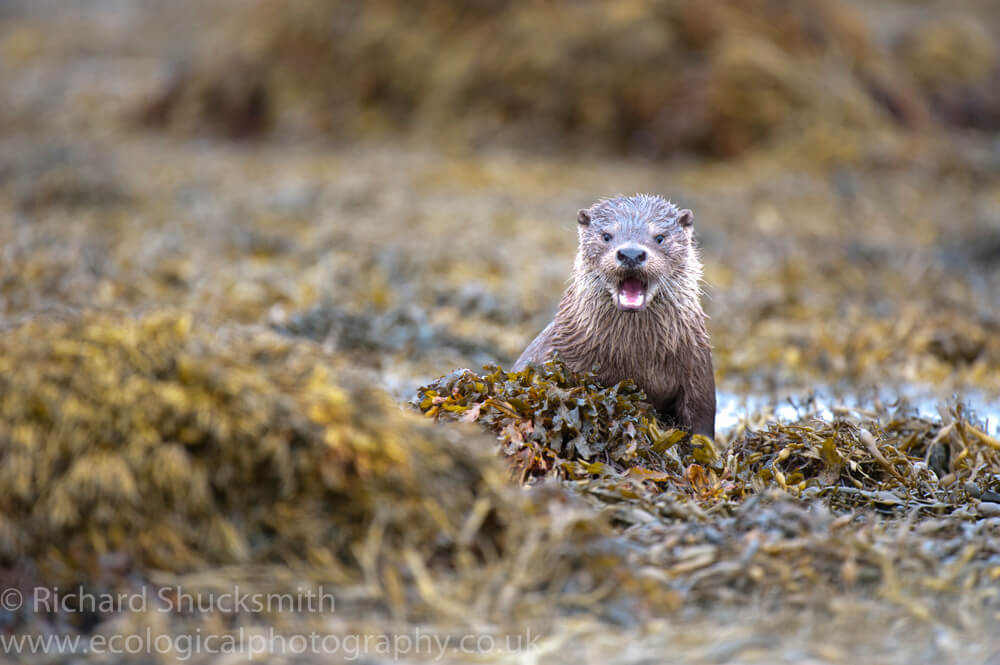This is an extract from my dairy when I first moved to Shetland and set about learning about where the best sites were to follow Shetland otters and to understand the behaviour of Shetland otters. I was interested to see the differences compared to the west coast of Scotland but first I need to explore the coast.
From the dairy:
Over the last 3 days I have been out early morning to catch the low tide that was occurring around first light, getting to know and trying to photograph the local otters. I find otters such fascinating creatures and can spend hours just observing them. So far I have got to know two local patches but one in particular is very interesting as there are at least 2 different female otters with cub’s and even watched one of the female otters carry her cub in her mouth as she moved the cub from one area to another. This cub was only a few weeks old. I never managed to photograph it due to being on the wrong side of the bay because of the wind direction. But all these observations help me piece things together and by being careful and persistent opportunities come. Yesterday morning was very frustrating as quick as I found otters as quick as they disappeared. Mainly to a holt in a boulder field where the mum and cub spend their time during high tide. Thinking I had missed my opportunity for the day I walked back home along the exposed coast, more just for the scenery. But as I rounded the corner I thought I heard an otter calling and then just out from the point there was an otter fishing. Wind was not quite in the right direction but it was OK so I hung back and just followed the otter along the coast. Over the next 2 hours the otter moved along the coast catching fish mainly. I saw an opportunity as the otter reached a small bay where the shoreline was good for trying to capture an image. There was a good chance the otter may come ashore and you can often tell when this may happen by a change in their behaviour. I got myself in position in a gully and I was not disappointed as he came out onto the rock. He was no more than 5-6 m away but frustratingly mainly hidden behind another rock. I managed a couple of shots before he moved back into the water and carried on fishing.
I followed the otter for another hour until he moved into a shallow bay and started feeding amongst the seaweed. This was a perfect opportunity, the wind was in the right direction for this bay and the tide was coming in. I could see a rocky outcrop to hide myself on but be close enough to get some pictures while not disturbing the otter. As I got into position he came out and promptly fell asleep on top of the seaweed and this brought it home once again why they can be so hard to spot when they’re not in the water fishing.
However, sleep was difficult for the otter as at first a flock of geese flew over, honking and startled him, before sleep overcame him again and his head drooped back onto the seaweed. But the tide was coming in and I knew he wouldn’t sleep too long, as he would be getting too wet very soon. I have often watched otters fall asleep on seaweed in the intertidal area only to get disturbed by a rising tide and start fishing again. However this was not to be, as a few minutes later a helicopter came over very low and he really didn’t like this and slipped back into the water. I thought that was it and he would disappear but a minute later I caught sight of him coming up through the seaweed with a crab in his mouth. He had started hunting again amongst the seaweed and slowly he worked through the channels and appeared very close with his head popping out through the seaweed.
Before long he was working his way back out the bay and then disappeared round the corner where the coast gets cliffy and much more difficult to follow the otter. I did walk back along the cliffs, looking, but never saw him again, most likely he was sat somewhere amongst the rocks trying to get some sleep, particularly as so far it had been a disturbed sleep. It was coming on to high tide and my time to head home. Excellent encounter and I headed home very happy.

